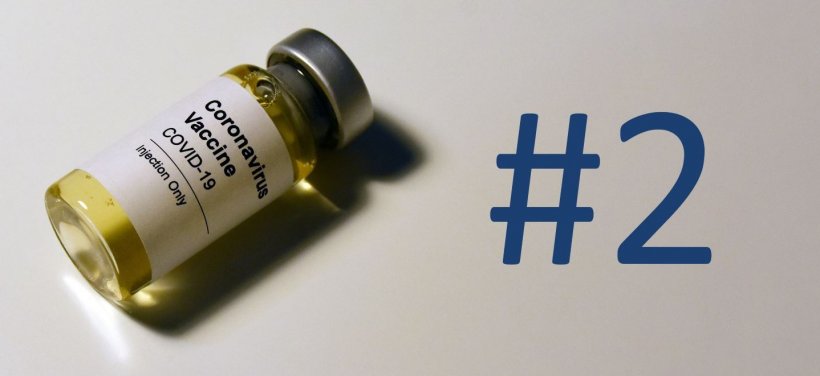Delaying the second dose of covid-19 vaccines, at least for people aged under 65, could result in up to 20% lower mortality, but only under certain conditions, finds a US study published by The BMJ recently.
These conditions include one-dose vaccine effectiveness (efficacy) of 80% or higher and vaccination rates of 0.1% to 0.3% of the population per day. If these conditions apply, the researchers say the strategy could prevent between 47 and 26 deaths per 100,000 people, respectively.
Both the Pfizer and Moderna covid-19 vaccines in a standard two-dose schedule are highly effective at preventing symptomatic infections and death. But immunity worldwide remains low, partly owing to low vaccination rates.
The longer it takes to effectively vaccinate the global population, the greater the likely risk of vaccine-resistant strains developing. This has led to calls to prioritize single-dose vaccination for as many people as possible, even if this means delaying a second dose beyond the studied time frame.
The justification for this relies on the assumption that meaningful protection against covid-19 can be achieved after a single dose of vaccine, but this is the subject of intense debate.
To explore this further, a team of US researchers set out to measure the impact of delayed second dose vaccine policies on infections, hospital admissions, and deaths compared with the current on-schedule two-dose regimen.
Using a simulation model based on a “real-world” sample population of 100,000 US adults, they ran a series of scenarios to forecast potentially infectious interactions under different conditions over a six-month period.
These included varying levels of vaccine efficacy and administration rates, and varying assumptions as to whether the vaccine prevents transmission and serious symptoms or only prevents serious symptoms, including death.
They also examined the impact of delaying second doses for those younger than 65, but not before fully vaccinating older people.
The results suggest that under specific conditions a decrease in cumulative mortality, infections, and hospital admissions can be achieved when the second vaccine dose is delayed.
The study replicated the simulations several times and used that data to estimate different population-level outcomes. For example, for a first dose efficacy of 80% and a daily vaccine administration rate of 0.1%, 0.3% and 1% of the population, the estimated total mortality per 100,000 for the delayed versus standard second-dose administration were 402 versus 442, 204 versus 241, and 86 versus 50, respectively.
These results suggest that a delayed second dose strategy is optimal for vaccination rates at or lower than 0.3% population per day if the vaccine efficacy from one dose is 80% or greater.
What’s more, the delayed second dose strategy for people under 65 performed consistently well under all vaccination rates tested, resulting in absolute cumulative mortality reductions up to an estimated 48 per 100,000.
These two conditions seem reasonable on the basis of the US Centers for Disease Control and Prevention (CDC) estimate of first dose vaccine efficacy being 80% and only a couple countries such as the US and UK reaching a vaccination rate close to 1%, explain the researchers.
They acknowledge some study limitations based on assumptions used in the model, but they aimed to capture the relevant complex human interaction that is critical in covid-19 transmission, across a timeframe that is useful to decision-makers. As such, they say these results may be broadly informative for the covid-19 vaccine strategy.
“Decision-makers will need to consider their local vaccination rates and weigh the benefits of increasing these rates by delaying a second dose versus the risks associated with the remaining uncertainty in this strategy,” they write. “These decisions should continue to be re-evaluated as new data become available,” they add.

 Delay strategy, at least for people under 65, could reduce deaths by up to 20%, say, researchers
Delay strategy, at least for people under 65, could reduce deaths by up to 20%, say, researchers




















.jpeg)












